Resources
8 min read
In today's ever-changing digital development landscape organizations face the challenge of delivering high-quality software quickly and efficiently. Developing and producing new products and updates is a compelling but fundamental part of any technology business. But ensuring the process runs smoothly to make certain that your release reaches your customers as expected can be challenging. This is where release management tools come in. They’re designed to streamline and automate the process of releases such as software updates and changes to production environments, whilst reducing the likelihood of issues arising.
Within this article we will provide information regarding what release management tools are and their purpose, to deepen your understanding. As well as outline a range of tools that could be incorporated into your organisation to streamline your release process.
Contents
What are release management tools?
Beginning with release management, this principle can be defined as the process of designing, planning, scheduling, and controlling the deployment of software updates, new features, and changes to a production environment in a systematic and controlled manner. The goal is to guarantee that these software releases are executed efficiently, smoothly and whilst minimizing disruptions to users and business operations.
Software release management tools are solutions designed to facilitate, streamline and automate the process of launching new features, software updates, and changes to a production environment. These tools aim to reduce the risk of errors during deployment and allow teams to collaborate while ensuring reliability, and consistency. These tools have similarities and they all tend to incorporate these key features:
- Deployment automation: These tools enable automation capabilities that streamline the deployment process. By allowing the user to define and automate deployment workflows they reduce the potential for human error and ensure reliable releases.
- Environment management: Release management tools help control different environments. To guarantee thorough testing before production, they allow you to define and configure environments to match the needs of your release process.
- Version control integration: Integrating these tools with version control systems like Git ensures that the correct versions of code and assets are deployed. This integration enhances traceability and helps maintain a clear record of changes.
- Release planning and scheduling: These tools offer capabilities for planning and scheduling releases. You can define release scope, dependencies, and timelines, allowing teams to collaborate effectively and avoid conflicts.
- Monitoring and reporting: In order to track the progress and success of your release, release management tools provide monitoring and reporting capabilities. You can monitor deployment stages in real time, track key performance indicators, and generate reports for post-release analysis and continuous improvement.
What does a release manager do?
A Release Manager has a vital role in software development and IT operations and is responsible for planning, coordinating, and overseeing the release of software products or updates. Their primary goal is to make certain that software releases are executed smoothly, efficiently, and with minimal disruption to the organization and its users.
Release Management Tools
To aid your organisation's decision for a long-term release management tool, we have compiled a release management tool list that includes the best tools currently available. Also, a recent study found that 75% of organisations say that deployment frequency is the main way they measure DevOps. Therefore, choosing the appropriate release management tool for DevOps is particularly important.
Chef
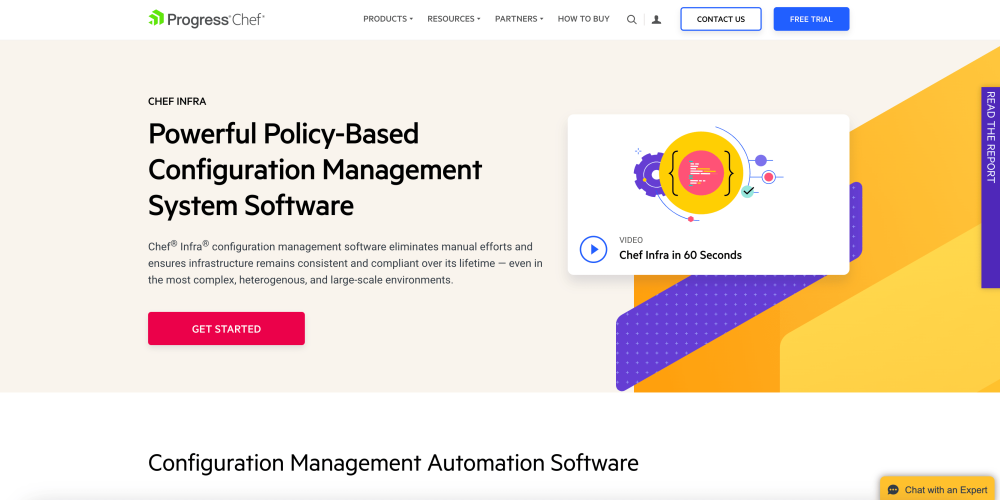 Chef is a software release management tool with a focus on aiding teams to scale continuous delivery. DevOps could use this tool to send applications to any environment on any OS or deployment platform. Also, the tool features an automation stack that helps teams automate key release processes, whilst the infrastructure management capabilities guarantee consistency across all environments. Finally, a slight drawback to Chef is that there is no free plan or freemium version and you need to inquire with Chef to receive a quote.
Chef is a software release management tool with a focus on aiding teams to scale continuous delivery. DevOps could use this tool to send applications to any environment on any OS or deployment platform. Also, the tool features an automation stack that helps teams automate key release processes, whilst the infrastructure management capabilities guarantee consistency across all environments. Finally, a slight drawback to Chef is that there is no free plan or freemium version and you need to inquire with Chef to receive a quote.
Jenkins
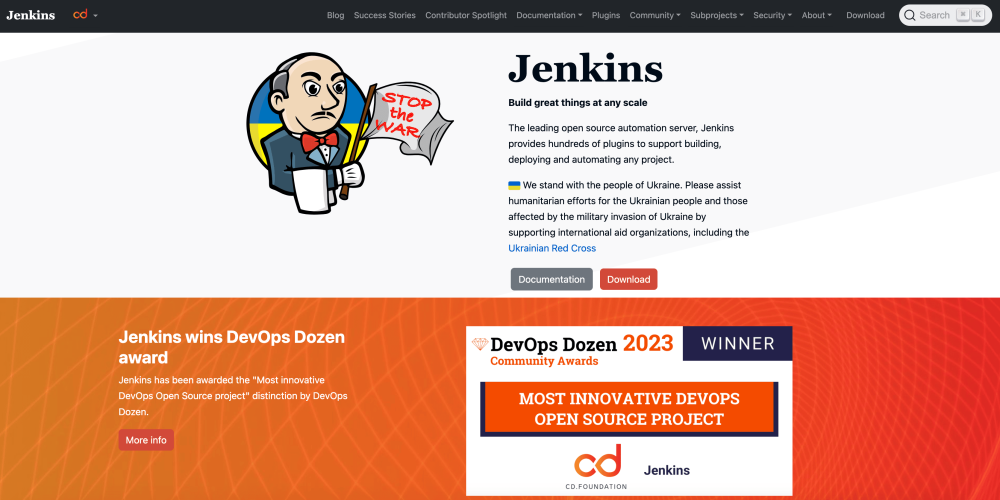 Jenkins is an open-source automation server that supports building, deploying, and automating any project reliably. Jenkins has a wide range of plugins available in their update centre and can be integrated with other software in the continuous integration and continuous development toolchain. However, it is worth noting that the interface for this tool isn’t particularly user-friendly compared to other release tools, so may take some time to familiarize yourself with it. But, a solid advantage to Jenkins is that it’s completely free.
Jenkins is an open-source automation server that supports building, deploying, and automating any project reliably. Jenkins has a wide range of plugins available in their update centre and can be integrated with other software in the continuous integration and continuous development toolchain. However, it is worth noting that the interface for this tool isn’t particularly user-friendly compared to other release tools, so may take some time to familiarize yourself with it. But, a solid advantage to Jenkins is that it’s completely free.
Digital.ai
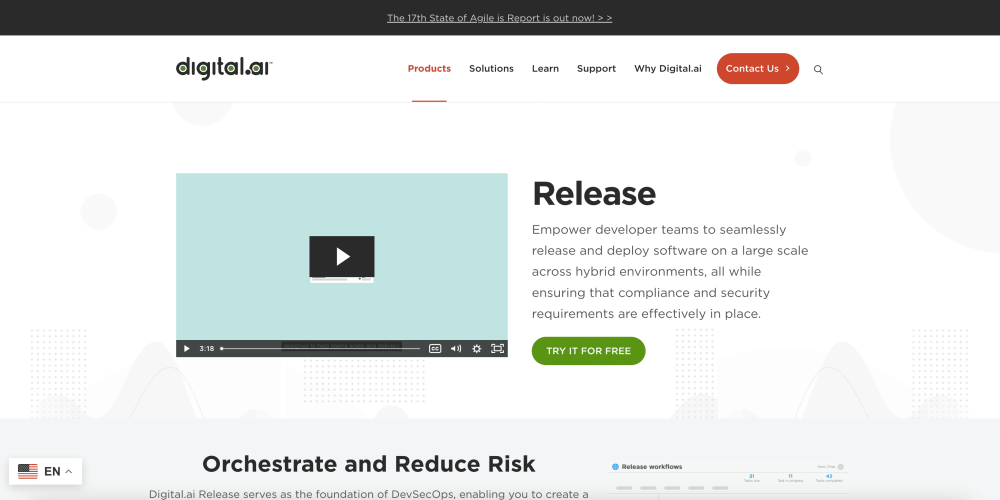 Digital.ai is another release management tool. It provides a unified platform for streamlining processes such as continuous deployment, continuous integration, and code management. It supports multiple technologies like, Java, and Python as well as effectively integrating with other tools such as Selenium and Apium. Digital.ai’s user interface is instinctive and user-friendly, allowing businesses to simply manage their software release processes. Whilst, Digital.ai is not a free tool, it does offer a free trial, so you can try it before you buy.
Digital.ai is another release management tool. It provides a unified platform for streamlining processes such as continuous deployment, continuous integration, and code management. It supports multiple technologies like, Java, and Python as well as effectively integrating with other tools such as Selenium and Apium. Digital.ai’s user interface is instinctive and user-friendly, allowing businesses to simply manage their software release processes. Whilst, Digital.ai is not a free tool, it does offer a free trial, so you can try it before you buy.
Octopus Deploy
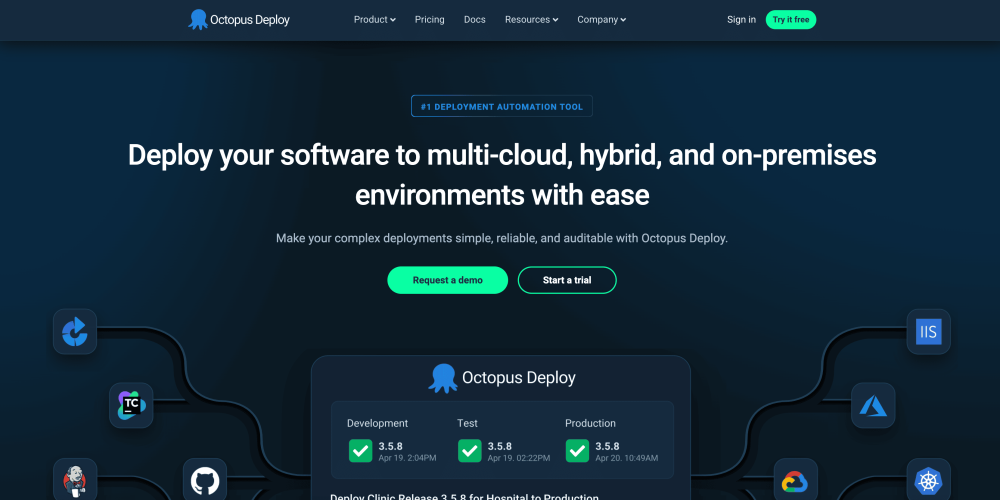 Octopus Deploy is a deployment automation tool that focuses on simplifying the release and deployment process for .NET applications and other technologies. It supports multi-environment deployments and has built-in deployment templates. Also, can construct a customised tutorial for their Continuous Integration (CI) and Continuous Delivery (CD) stack. Finally, plans for Octopus Deploy start from $50 per month and there is a free 30-day trial available.
Octopus Deploy is a deployment automation tool that focuses on simplifying the release and deployment process for .NET applications and other technologies. It supports multi-environment deployments and has built-in deployment templates. Also, can construct a customised tutorial for their Continuous Integration (CI) and Continuous Delivery (CD) stack. Finally, plans for Octopus Deploy start from $50 per month and there is a free 30-day trial available.
Unleash
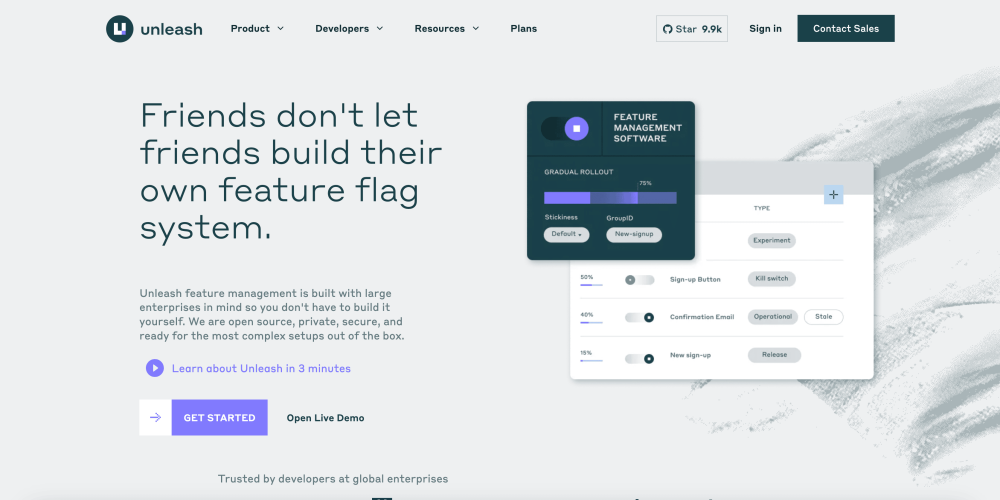 Unleash is an open-source software release management tool with some of the best built-in data security features. The tool allows developers to automate the deployment of new features whilst drastically reducing the time it takes to push updates across multiple environments. The tool possesses an interactive dashboard with real-time insights on updates, new features, performance metrics, and feature adoption rates. Finally, Unleash pricing begins at $80 per month for 5 users and has a 14-day free trial plus a free demo available.
Unleash is an open-source software release management tool with some of the best built-in data security features. The tool allows developers to automate the deployment of new features whilst drastically reducing the time it takes to push updates across multiple environments. The tool possesses an interactive dashboard with real-time insights on updates, new features, performance metrics, and feature adoption rates. Finally, Unleash pricing begins at $80 per month for 5 users and has a 14-day free trial plus a free demo available.
Azure Pipelines
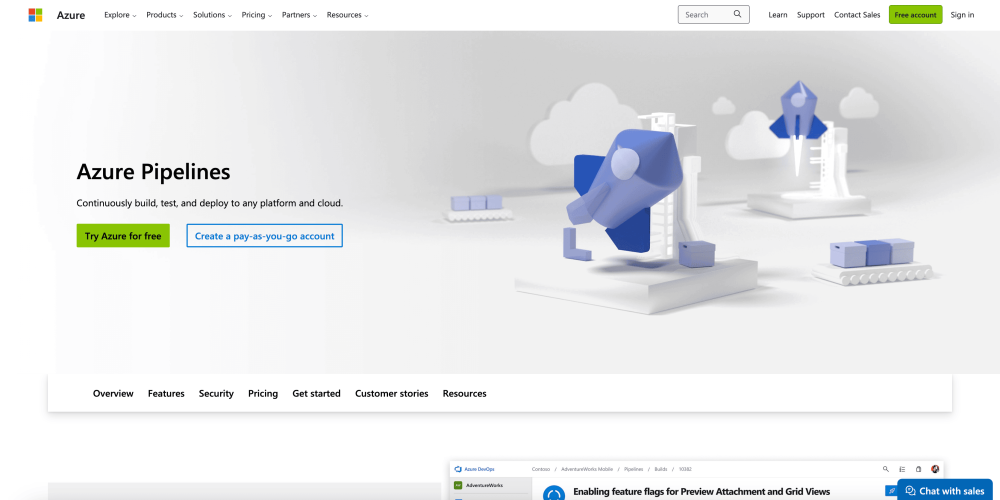 Azure pipelines is a release management tool with the capabilities of constructing and deploying code written in any language using any platform. The tool enables Linux, macOS, and Windows agents hosted by Microsoft with full CI/CD release pipeline support. However, if a user is new or not used to this type of system then this platform and its core abilities can be difficult to grasp. Finally, Azure Pipelines is free for public projects, for custom quotes, it's worth inquiring with Azure Pipelines.
Azure pipelines is a release management tool with the capabilities of constructing and deploying code written in any language using any platform. The tool enables Linux, macOS, and Windows agents hosted by Microsoft with full CI/CD release pipeline support. However, if a user is new or not used to this type of system then this platform and its core abilities can be difficult to grasp. Finally, Azure Pipelines is free for public projects, for custom quotes, it's worth inquiring with Azure Pipelines.
Plutora
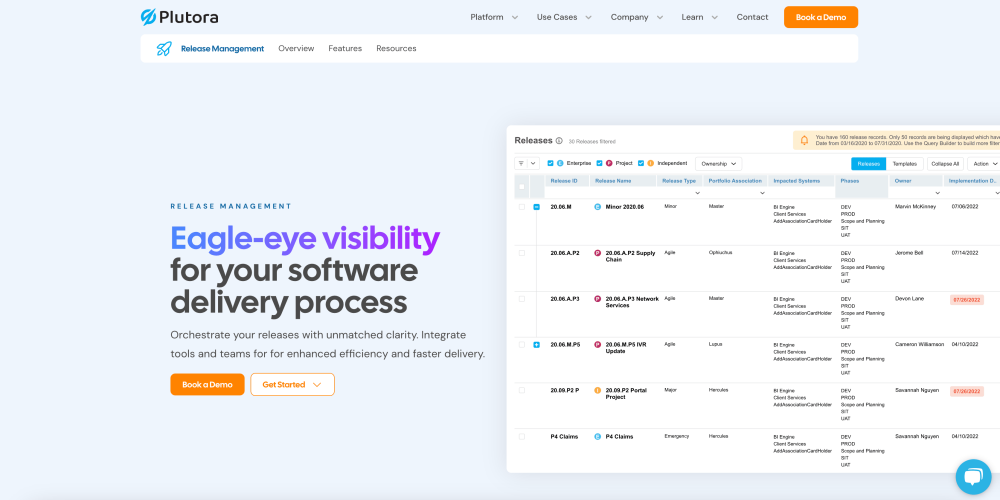 Another software release management tool is Plutora. The tool helps users understand the entire software release process and gain control over their releases. It allows you to view how different teams perform and ensures that independent teams are aligned with the business. Additionally, the tool features powerful analytics and visualization capabilities that highlight information about your entire software delivery process. Finally, Plutora do not advertise their pricing and you’ll need to contact them directly for a quote and a demo.
Another software release management tool is Plutora. The tool helps users understand the entire software release process and gain control over their releases. It allows you to view how different teams perform and ensures that independent teams are aligned with the business. Additionally, the tool features powerful analytics and visualization capabilities that highlight information about your entire software delivery process. Finally, Plutora do not advertise their pricing and you’ll need to contact them directly for a quote and a demo.
Prodly
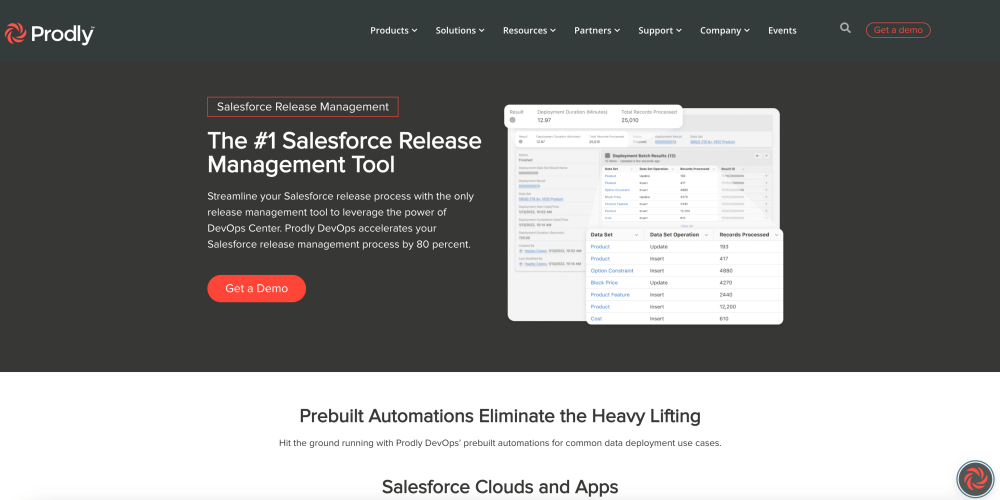 Prodly is a release management tool for Salesforce. It has multiple features to streamline releases. One of these is that you can compare your salesforce environments to establish who made changes and at what time. Also, there are automated data deployment tools that enable the user to move your new configuration data in just a few clicks. Finally, similarly to Plutora, Prodly does not advertise its pricing so you’ll need to contact the company for this information.
Prodly is a release management tool for Salesforce. It has multiple features to streamline releases. One of these is that you can compare your salesforce environments to establish who made changes and at what time. Also, there are automated data deployment tools that enable the user to move your new configuration data in just a few clicks. Finally, similarly to Plutora, Prodly does not advertise its pricing so you’ll need to contact the company for this information.
Jira
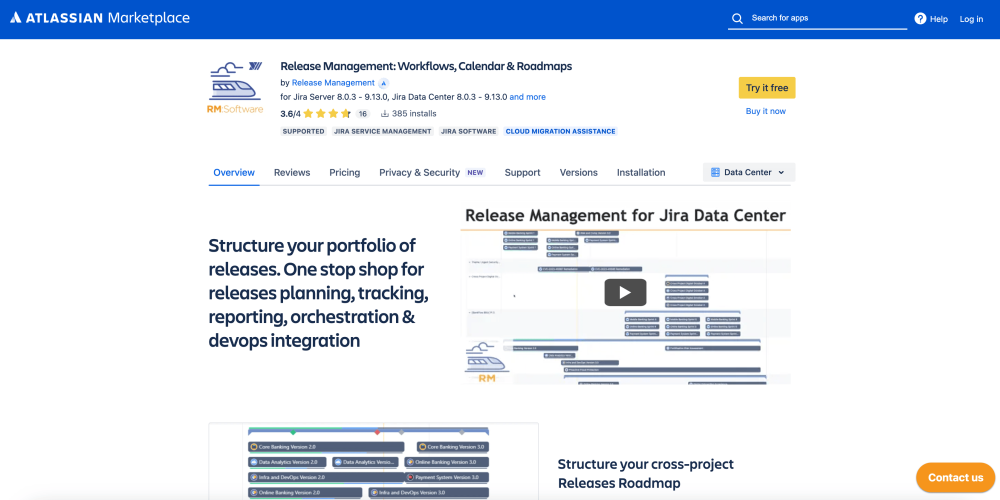 Jira, developed by Atlassian, is a release management tool that focuses on issue tracking. It provides sufficient visibility on the release process and improves collaboration between engineering and product teams to monitor releases. Which, in turn, helps to increase productivity. Furthermore, the incident report dashboard is a great feature that helps to resolve code deployment issues faster. Lastly, Jira has a free plan option but that has limitations, pricing starts from $8 per user.
Jira, developed by Atlassian, is a release management tool that focuses on issue tracking. It provides sufficient visibility on the release process and improves collaboration between engineering and product teams to monitor releases. Which, in turn, helps to increase productivity. Furthermore, the incident report dashboard is a great feature that helps to resolve code deployment issues faster. Lastly, Jira has a free plan option but that has limitations, pricing starts from $8 per user.
Unrevealed
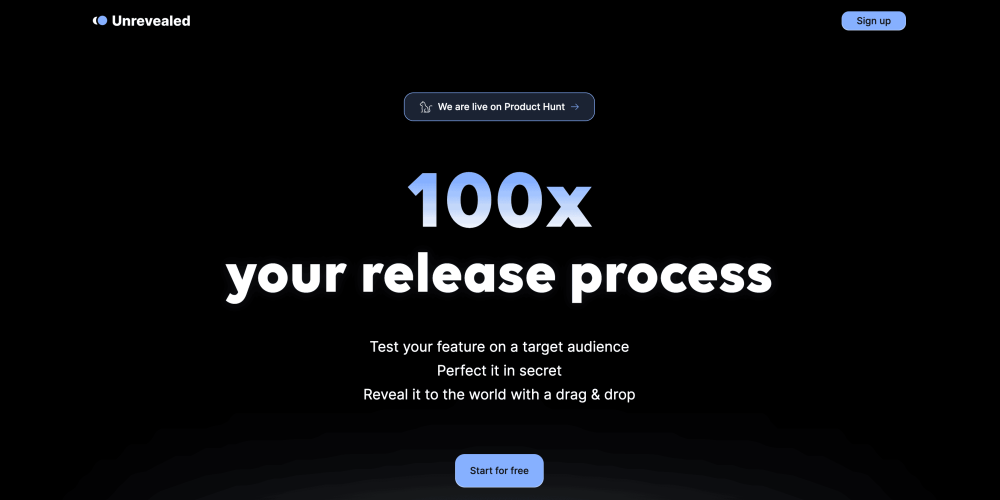 Unrevealed is a release management tool designed for product teams to manage their feature rollouts. With the solution you can test your feature on a target audience, then perfect and finalise the feature in private, before wider release. You can utilize both direct access (enabling features to beta testers to attain early feedback) and partial rollouts (release features to a percetange of users and measure the impact before going live).
Unrevealed is a release management tool designed for product teams to manage their feature rollouts. With the solution you can test your feature on a target audience, then perfect and finalise the feature in private, before wider release. You can utilize both direct access (enabling features to beta testers to attain early feedback) and partial rollouts (release features to a percetange of users and measure the impact before going live).
Gotkey.io
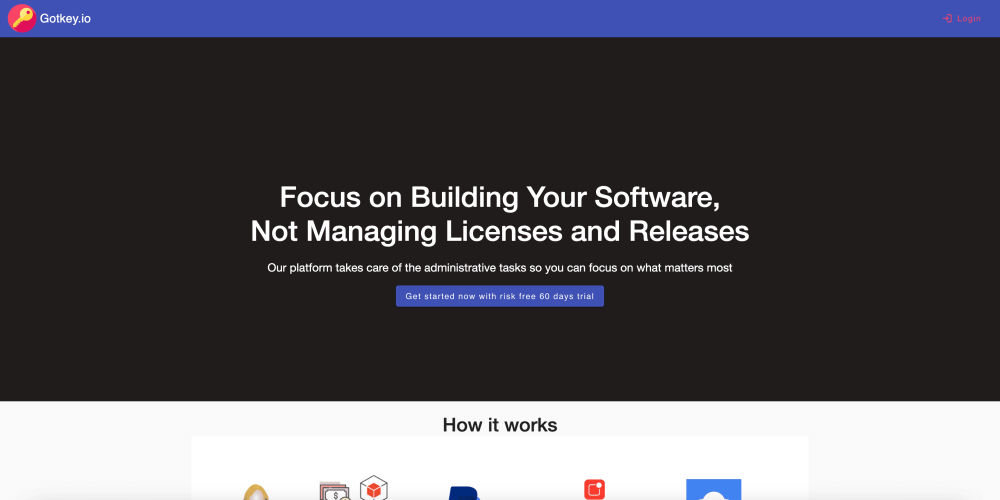 Gotkey.io handles the administrative tasks associated with managing licenses and releases, enabling you and your team to focus on more important matters such as building your software. It works by you buy the software you require, then the payment is processed notifying Gotkey.io, after this Gotkey.io automatically creates license keys and prepares emails, before sending the download links or license keys to you.
Gotkey.io handles the administrative tasks associated with managing licenses and releases, enabling you and your team to focus on more important matters such as building your software. It works by you buy the software you require, then the payment is processed notifying Gotkey.io, after this Gotkey.io automatically creates license keys and prepares emails, before sending the download links or license keys to you.
Flosum
 Flosum enables DevOps and DevSecOps to manage, plan, schedule, and control their deployments via different stages in the Salesforce environment. This release management tool aims intends for you to attain extreme release velocity. Flosum can assist your DevOps Git better by preventing code overwrites and autofixing deployment issues, as well as offering deep analytics and a flexible branching strategy enabling your team to resolve merges quickly.
Flosum enables DevOps and DevSecOps to manage, plan, schedule, and control their deployments via different stages in the Salesforce environment. This release management tool aims intends for you to attain extreme release velocity. Flosum can assist your DevOps Git better by preventing code overwrites and autofixing deployment issues, as well as offering deep analytics and a flexible branching strategy enabling your team to resolve merges quickly.
CloudBees
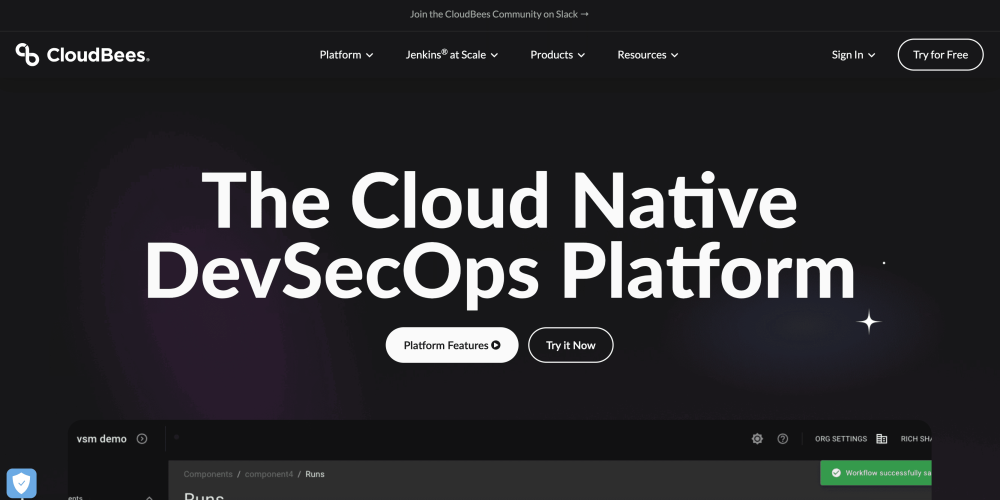 CloudBees have devised a type of release mangement tool that is the first of its kind, an automated software delivery system. The CloudBees Platform allows organisations to transition from incoherent, disconnected DevOps to self-service, fast, secure workflows connecting software delivery to business outcomes. The tool creates fast, compliant workflows by empowering developers with self-service automation, model-driven pipelines, and security by default.
CloudBees have devised a type of release mangement tool that is the first of its kind, an automated software delivery system. The CloudBees Platform allows organisations to transition from incoherent, disconnected DevOps to self-service, fast, secure workflows connecting software delivery to business outcomes. The tool creates fast, compliant workflows by empowering developers with self-service automation, model-driven pipelines, and security by default.
Spinnaker
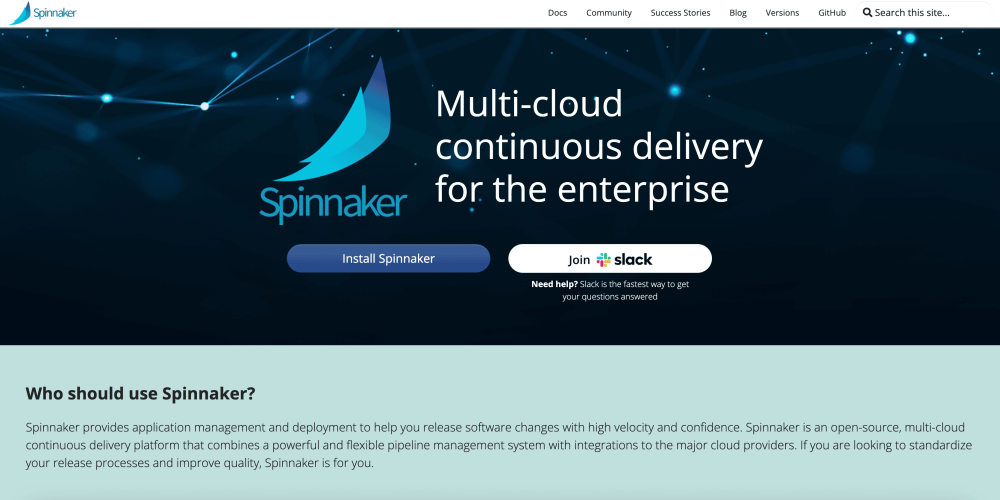 Spinnaker is the last release management tool on our list. The tool is a multi-cloud, open-source continuous delivery platform, that features application management and deployment. This supports teams to release software updates with high velocity and confidence. Spinnaker is a free tool for open-source projects, but there’s certainly a time cost and learning curve for developers to learn and install the solution.
Spinnaker is the last release management tool on our list. The tool is a multi-cloud, open-source continuous delivery platform, that features application management and deployment. This supports teams to release software updates with high velocity and confidence. Spinnaker is a free tool for open-source projects, but there’s certainly a time cost and learning curve for developers to learn and install the solution.
If you enjoyed this article then why not read our guide to continuous integration or all about telemetry data next?
